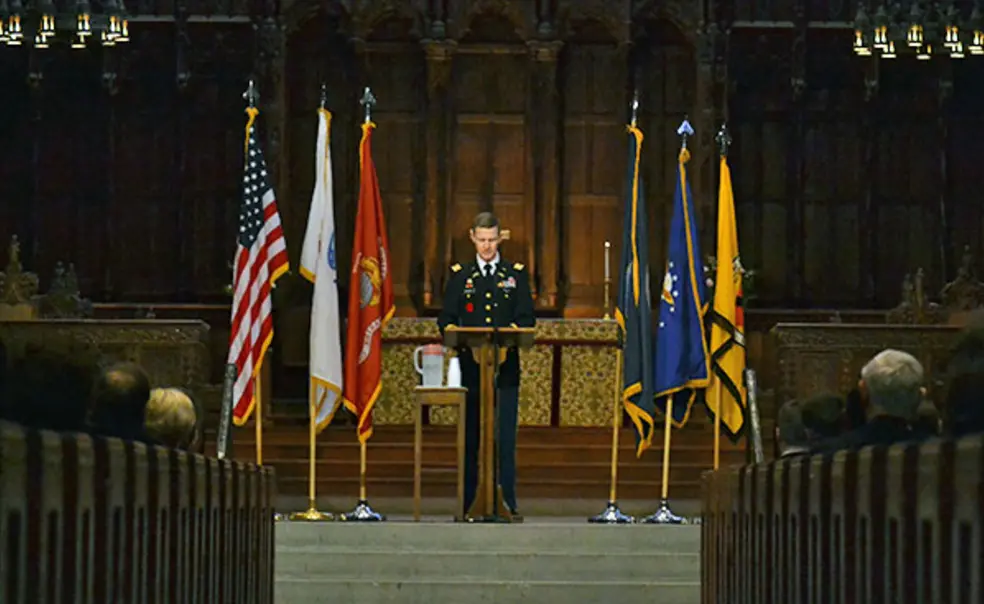Princeton Marks Veterans Day With Chapel Ceremony
Midshipmen of Princeton and Rutgers Naval ROTC, combining the traditional military salute with the bells that rang in peace worldwide a century earlier, rang a bell of peace 21 times during the University’s Veterans Day observance in the Chapel.
Spencer Reynolds Jr. ’92, senior associate director of corporate engagement in the Office of the Dean for Research, described the evolution of the University’s role in World War I in his remarks. Reynolds, a lieutenant colonel in the Pennsylvania Army National Guard, began his military career in Princeton ROTC and has served in Bosnia and Iraq.
Prior to World War I, Reynolds said, military service was not common among Princetonians, although at the outbreak, some joined Canadian regiments or volunteered in the allied military service in Europe. Starting in 1915, the University supported service on a volunteer basis, offering open lectures on military history and organization and rifle instruction; a year later, an Army captain began teaching an elective course in military instruction.
In the spring of 1917, when the United States entered the war, the University moved to create a summer training camp for officer candidates and a fulltime aviation ground school for pre-flight trainin that would accept 700 trainees at a time. Faculty began conducting war-related research.
Reynolds pointed out “increasingly radical changes” on campus in by mid-1918 because of the desperate fighting in Europe, and said he was saddened to read a University statement at the time that “to prevent the presence of enemy sympathizers,” no one would be admitted who did not sympathize with the war effort. By September 1918, the University had transformed itself into a military officer training school — of 1,400 undergraduates, only 60 were not in the service.
By the end of the war, Reynolds said, 6,170 students and alumni and 139 faculty members were involved in the conflict, and 117 students and three faculty members were among the casualties.
He concluded by saying that, while Woodrow Wilson 1879 was imperfect in some areas, he was right to say that “if [a college] is to do its right service, the air of affairs should be admitted to all its classrooms – the sense of the duty of man toward man, of the significance of truth for guidance as well as for knowledge. … Our resource for the future lies in careful thought, providence, and a wise economy; and the school must be of the nation.”
More than 150 people attended the annual service to honor those who served their country. The University said 136 alumni veterans had died in the past year, along with 18 veteran employees and retirees; 169 current employees are veterans.












No responses yet